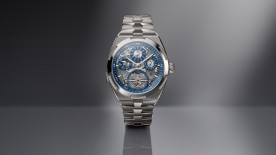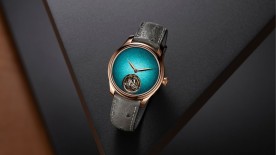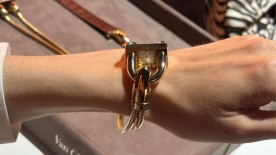Ten years is something to celebrate! And the Fondation de la Haute Horlogerie (FHH) did not miss the opportunity to celebrate on 26 and 27 April. During the first leg of its ‘Roadshow’ at the ‘we are_club’ in the 8th arrondissement of Paris, the FHH presented its activities around watchmaking knowledge and education, as well as its certification. These included a ‘Watch Icons’ augmented reality experience - developed in collaboration with the FHH's partner brands - featuring twelve digital works, an exhibition of twelve timepieces from brands of French origin, a watch movement assembly and disassembly workshop with professional watchmakers, a live performance by gouache artist Estelle Lagarde, themed tables, lectures, panel discussions on topical subjects, and of course the famous quiz night, with questions taken from their certification.
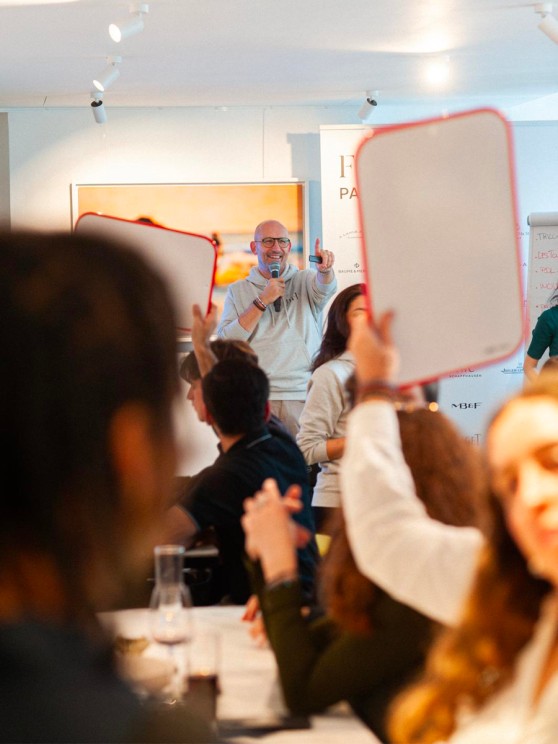
And not least, the FHH Academy has unveiled its new training course - the Watch Essentials course in video format. Aimed at the general public, these educational and entertaining courses are similar to a Masterclass, divided into successive episodes. Students will find a variety of content on the platform, including podcasts and quizzes, which can be accessed at any time to facilitate learning. Available on the FHH website, the course will initially be available only in France, then in Switzerland.
We spoke to Pascal Ravessoud, vice-president of the FHH, about the new FHH Academy online course, the role the foundation plays in the industry and how he got into watchmaking.
In case you haven't already, check out our interview with Aurélie Streit, Vice-President of the FHH and founder of the FHH Academy.
What a great place to start your Roadshow!
(Laughs) We told ourselves that we had to focus on quality, that it wasn't our idea to hold a big mass for as many people as possible. We wanted people to be able to get to know us in good conditions, conducive to exchange, informal, because we want to be very human in our contact, particularly because some people can sometimes perceive watchmaking as a bit distant and aloof. Some people go into boutiques and feel they can't ask questions. So we really try to be the first step towards knowledge. To make people want to learn, that step has to be easy to take, we have to be able to approach people in a simple, no-frills way, and put the human element back at the centre.
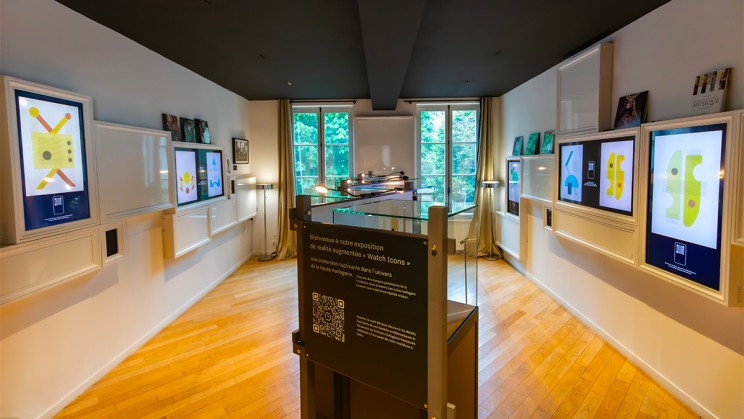
Yes, you can feel that in the overview of the training course I've just attended. Everything is really explained in a way that's accessible to everyone.
That's it! I've been in the watchmaking business for 20 years and I realise that a lot of people are interested. But you have to take them by the hand to take the first step. It's the first step that counts, as in life. Once that first step has been taken, people want to know more and will continue the process themselves. But this is especially true of watchmaking: because it's technical and there's a lot of information in a very small volume, it can be off-putting. People don't necessarily understand the value and complexity. If you manage to deconstruct this difficulty at the first stage, people then want to know more. How many times have I given ‘awakening’ training courses or conferences where people say to me at the end ‘ah, that's great, I've learnt lots of things, I want to know more’? And then, two years later, those same people have bought a watch, have books and are interested in watchmaking. Our approach is to break the ice.
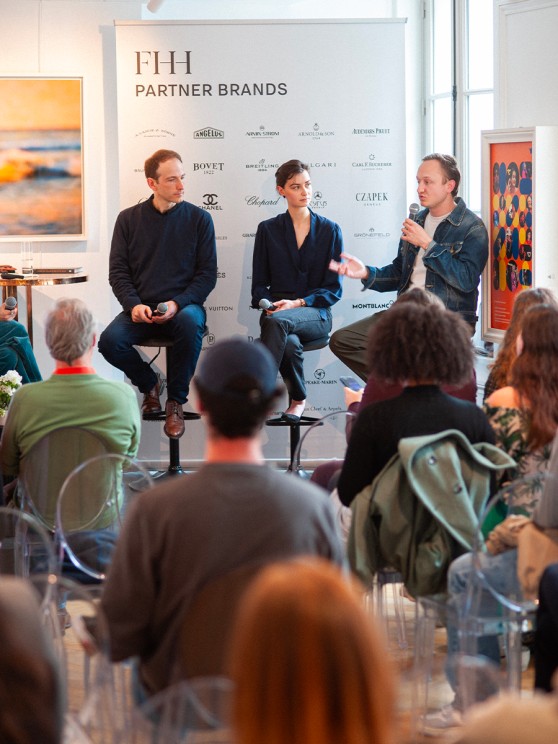
The FHH Academy is celebrating its 10th anniversary this year. Did you anticipate its growth and impact on the industry over the last decade?
At the Academy, we have around 70 customers from all over the world, many of whom are partner brands. The biggest players among our partner brands are already customers. On the other hand, we feel that end customers are hungry for training and certification - a huge need that didn't exist ten years ago. When we launched the Academy, the industry was nowhere near where it is today: brands had huge training needs, because their sales staff were faced with customers who knew more and more. We're now past that phase, even if there are still needs due to the fact that everything is constantly being renewed.
The growth we see over the next five to ten years is due to the development of the B2C business - end customers who have heard about certification, want to be certified and are asking us how to go about it. We've had this insistent demand for two years now, post-COVID. We feel that this is a game-changer and that's why we're developing it now.
One of the main aims of the FHH's educational pillar has always been to provide consumers with the right information so that they can make the right purchasing decisions, making them a long-term quality audience for watchmaking. Is it complicated to inform people about these subjects without necessarily saying that one method is better than another, that one brand is better than another?
The FHH doesn't get into that. We're here to promote the industry in general, and the incredible story that watchmaking has told through various examples. But that doesn't mean that just because we choose one example, the other is any less good. It's all about getting the best out of knowledge, because as you said before, a better-educated customer is a better customer and a better-educated employee is a better employee. Sometimes brands come to us and say that they'd prefer us to put them forward, like this or that, for example, in terms of their story. But we're here to tell the story of watchmaking in a general, neutral way, and we'll never say that so-and-so is better than so-and-so. That's not our role. Who are we to say that?
Furthermore, there is no question of us only highlighting partner brands as opposed to non-partner brands. We can't ignore certain watches because it would be distorting the information not to include them. It's very important that the FHH is seen as a reference source. Today, there is so much fake news and AI; there are 150,000 websites talking about watchmaking. There isn't always the same information and people need a point of reference. We want to be that reference point by being credible, fair and neutral. We're not doing this for commercial gain, we've got nothing to sell. The Foundation is a not-for-profit organisation, and everything we do is designed to increase knowledge. The more credible and neutral we are, the more meaningful our actions will be.
Given the future trajectory of the FHH Academy, what are your long-term goals for its development over the next ten years?
The long-term goal is really to become the foundation for the whole industry. We'd like all the big players to put their trust in us and become our partners. Today we have 44, but there are many more. We'd really like everyone to be aware of the value we bring to the whole industry. If we have that, we know that behind us, we'll develop everything we need to help them even more. The more partners we have, the more funding we'll have to develop projects. It's a bit like a virtuous circle. And of course we're going to develop B2C, particularly with our new online training course.
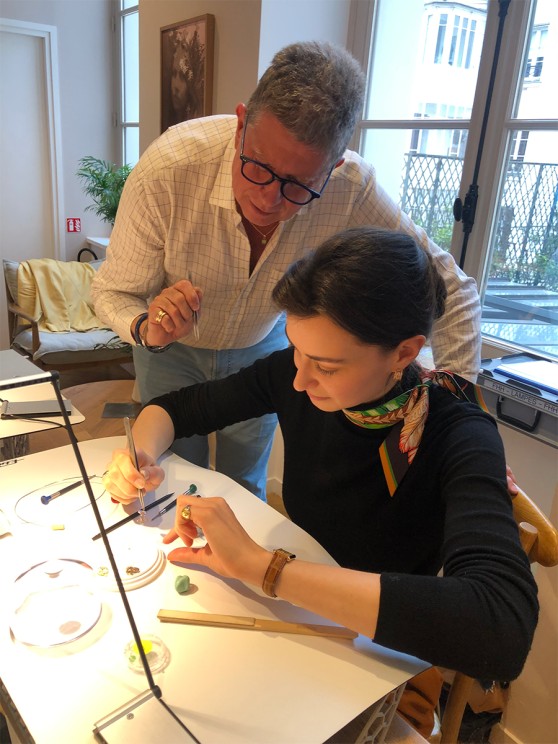
Can you share an anecdote to illustrate how the FHH can advance the love of and interest in watchmaking?
I have a personal anecdote about how I got into watches. When I was 18, it was the Swatch phenomenon – it was crazy. They were still plastic, quartz watches. Back then, watchmaking was nothing: there were no collectors, nothing. We collected Swatches with friends. We'd go to Milan and Paris to see the launches. We'd look for the new Swatches, and that was how we had fun. Then, when I was 20 or 21, a friend - who was more advanced than we were - showed me a mechanical watch with a visible back. He turned the watch and I could see the movement. There I was (editor's note: he imitates a shocked face). From that day on, I was screwed.
The FHH can create that spark in the eyes of people who are initially incredulous. After one of our training courses or conferences, you see people with their eyes lit up, you really feel the passion. You see these people again later and realise that they are indeed into this hobby, this passion. They've got caught up in it.
And that passion is one of the things you can communicate. Our interest lies in communicating it.


